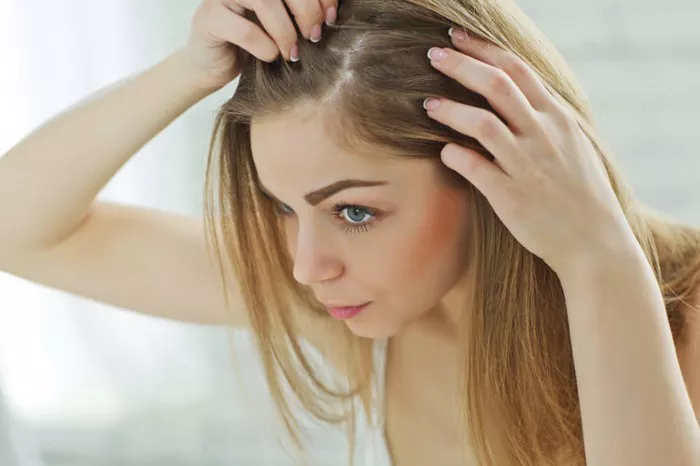Hair loss can be a distressing experience for many individuals, affecting both men and women of all ages. While some degree of hair shedding is normal, excessive hair loss can be a cause for concern and may indicate an underlying issue. Fortunately, there are various strategies you can employ to prevent hair loss and maintain healthy, strong hair. In this article, we’ll explore the best ways to prevent hair loss, providing actionable tips and insights to help you preserve your locks and promote hair growth.
Understanding Hair Loss:
Types of hair loss: Hair loss can occur for various reasons, including genetics, hormonal changes, medical conditions, medications, and lifestyle factors.
Normal hair growth cycle: Understanding the hair growth cycle can help you differentiate between normal shedding and excessive hair loss. The hair growth cycle consists of three phases: anagen (growth phase), catagen (transitional phase), and telogen (resting phase).
Causes of hair loss: Common causes of hair loss include genetics (male and female pattern baldness), hormonal imbalances (such as thyroid disorders or pregnancy), medical conditions (such as alopecia areata or scalp infections), medications (such as chemotherapy drugs), and lifestyle factors (such as stress, poor nutrition, or harsh styling practices).
Best Ways To Prevent Hair Loss:
Maintain a healthy diet: Consuming a balanced diet rich in vitamins, minerals, and nutrients is essential for promoting hair health and preventing hair loss. Focus on incorporating foods high in protein, iron, zinc, vitamin A, vitamin C, and omega-3 fatty acids, such as lean meats, fish, eggs, leafy greens, nuts, seeds, and fruits.
Practice good hair care habits: Adopting a gentle hair care routine can help minimize damage and breakage, reducing the risk of hair loss. Use a mild shampoo and conditioner suitable for your hair type, and avoid overwashing or using hot water, which can strip away natural oils and lead to dryness and breakage.
Avoid harsh styling practices: Limit the use of heat styling tools such as blow dryers, flat irons, and curling irons, as excessive heat can damage the hair cuticle and contribute to hair loss. Opt for heat-free styling methods whenever possible, and use heat protectant products when heat styling is necessary.
Be gentle with wet hair: Wet hair is more fragile and prone to breakage, so handle it with care when washing and styling. Use a wide-tooth comb or a detangling brush to gently remove knots and tangles, starting from the ends and working your way up to the roots.
Protect your hair from the sun: Prolonged exposure to the sun’s UV rays can damage the hair cuticle and cause dryness and breakage. Wear a hat or use a leave-in conditioner with UV protection when spending time outdoors to shield your hair from the sun’s harmful effects.
Manage stress: Chronic stress can disrupt the hair growth cycle and contribute to hair loss. Practice stress-reducing techniques such as meditation, yoga, deep breathing exercises, or mindfulness to help manage stress levels and promote overall well-being.
Avoid tight hairstyles: Hairstyles that pull on the hair, such as tight ponytails, braids, or buns, can cause traction alopecia, a type of hair loss resulting from constant tension on the hair follicles. Opt for looser hairstyles and avoid wearing tight hairstyles for extended periods.
Consult a healthcare professional: If you’re experiencing significant hair loss or noticing changes in your hair growth pattern, consult a dermatologist or trichologist for a proper evaluation and diagnosis. They can help identify the underlying cause of your hair loss and recommend appropriate treatment options.
Conclusion:
Hair loss is a common concern for many individuals, but it doesn’t have to be inevitable. By adopting healthy lifestyle habits, practicing good hair care techniques, and addressing underlying issues, you can prevent hair loss and maintain strong, healthy hair. Remember to nourish your body with a balanced diet, be gentle with your hair when washing and styling, protect it from environmental damage, manage stress levels, and seek professional guidance if needed. With the right approach and consistency, you can preserve your locks and enjoy a lifetime of healthy, beautiful hair.
In conclusion, preventing hair loss requires a multifaceted approach that addresses various factors contributing to hair health and growth. By incorporating the best practices outlined in this article into your daily routine, you can minimize the risk of hair loss and maintain strong, healthy hair for years to come. Remember that consistency and patience are key, and don’t hesitate to seek professional guidance if you’re experiencing significant hair loss or changes in your hair growth pattern. With proactive care and attention, you can keep your locks looking luscious and vibrant, boosting your confidence and overall well-being.
Can Taking Collagen Help With Hair Loss

